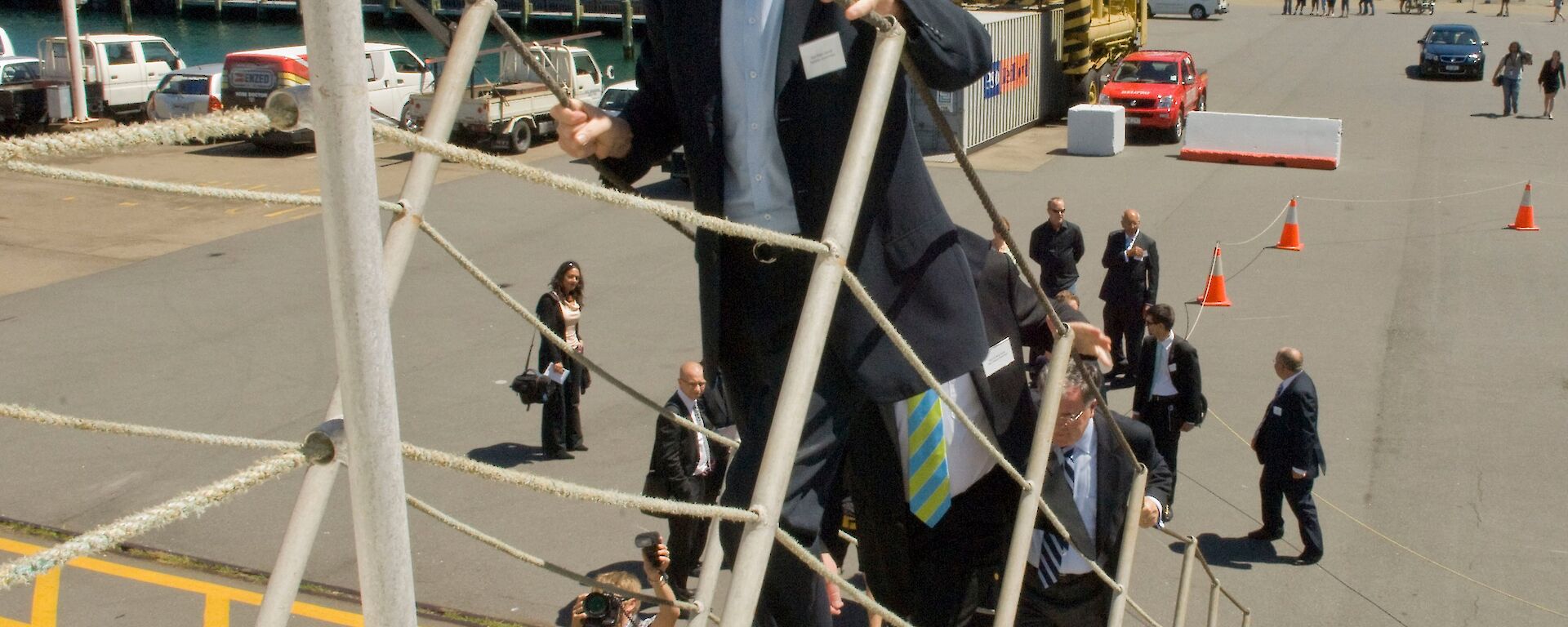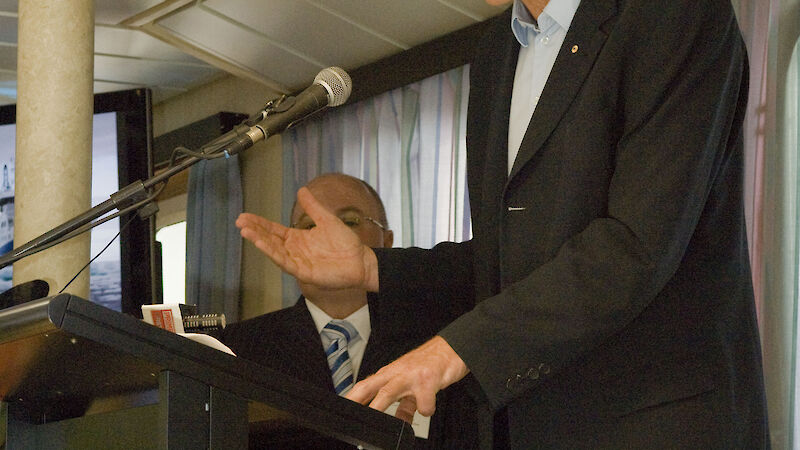Australian Minister for the Environment, Peter Garrett, and New Zealand Minister for Research Science and Technology, Wayne Mapp, launched the first Antarctic whale research expedition as part of the Southern Ocean Research Partnership in Wellington today.
“This expedition — the largest of its kind — demonstrates the Government’s position that non-lethal whale research can provide all the information needed to understand and conserve whales,” Mr Garrett said.
“A program of this scale not been seen before. It marries rigorous science and serious environmental inquiry, with an emphasis on collaboration, and respect for the oceans and the creatures that make their home in the vast waters of our planet.”
The inaugural Antarctic Whale Expedition will undertake six weeks of research aboard the New Zealand vessel RV Tangaroa in the Antarctic waters to the south of Australia and New Zealand.
The expedition will use state-of-the-art non-lethal research techniques such as biopsy sampling, satellite tracking and acoustic and hydrographic surveys.
The research jointly undertaken by Australia, New Zealand and French scientists aboard the RV Tangaroa will improve the understanding of the population structure, abundance, trends, distribution, and ecological role of whales in the Southern Ocean.
“The Southern Ocean Research Partnership is the first truly international, multidisciplinary research collaboration with a focus on improving the conservation of whales,” Mr Garrett said.
“The Partnership is a key International Whaling Commission (IWC) non-lethal research initiative and this voyage will be its most significant activity yet.
"Australia and New Zealand have assembled scientists who are international leaders in their fields to conduct this work. Dr Nick Gales will lead the scientific aspects of the work with his colleagues from Australia, New Zealand and France.
“Their research projects have been deliberately developed to address the most pressing conservation science issues for whales in this region, for example, informing our understanding of why some species, such as Antarctic blue whales, remain such a rare animal in the Southern Ocean. They will also address key issues associated with climate change, such as how whales utilise their vulnerable sea-ice habitats.
“The preliminary results of the expedition will be presented at the IWC annual meeting in Morocco in June 2010,” Mr Garrett said.



